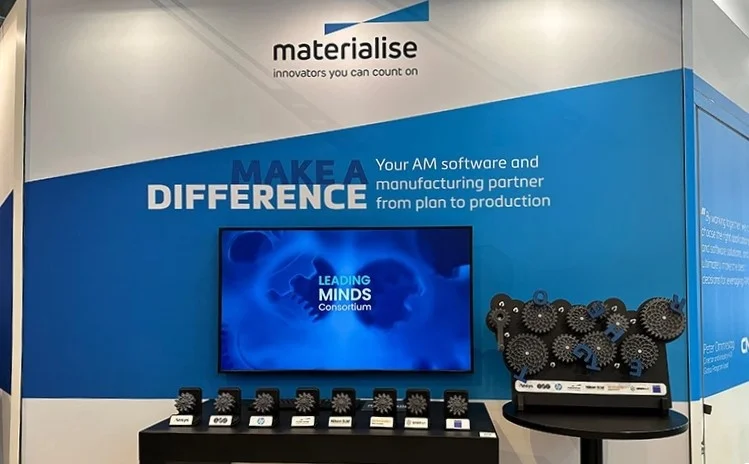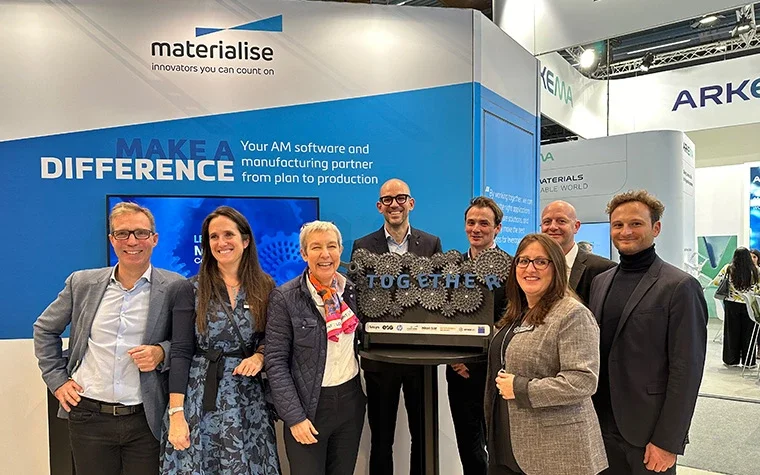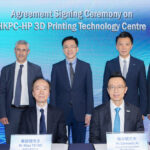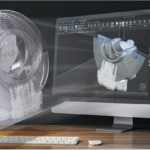ASIA ELECTRONICS INDUSTRYYOUR WINDOW TO SMART MANUFACTURING
3D Printing to Get Boost in New Consortium
At Formnext 2024, a new consortium has been announced to address key challenges related to the adoption and scale-up of 3D printing technology in industrial applications. The consortium “Leading Minds” includes Ansys, EOS, HP, Materialise, Nikon SLM, Renishaw, Stratasys and TRUMPF. Particularly, the consortium aims to overcome the many barriers that prevent the adoption of 3D printing. Also, it aims to help manufacturers integrate and scale their 3D printing solutions more effectively. One of the consortium’s initial efforts is to create a framework that will serve as a reference for a common language for 3D printing.

According to Leading Minds, “3D printing has proven its usefulness in a variety of fields, transforming product design and providing highly customized solutions. Currently, 3D printing is moving from a niche innovation to mass production. To achieve this, the industry needs to overcome skepticism and deliver specific, scalable solutions. This will solidify the foundation of modern industrial production.”
Challenges in Introducing and Scaling 3D Printing: From “Why?” to “How?” Migrating to
Despite the potential, many manufacturers still feel barriers to the adoption of 3D printing. According to the survey, while companies recognize 3D printing as a key trend in manufacturing, nearly all companies (98%) face challenges to 3D printing adoption, including a lack of expertise, perceived high costs, and difficulty integrating with established processes. Overcoming these challenges requires more than individual effort. The entire industry needs to work together to make the technology more accessible to more manufacturers.
As the debate shifts from the question of “why should we adopt 3D printing?” to the question of “how can it be effectively integrated?”, manufacturers are looking for concrete strategies to overcome these barriers. To address these challenges directly, the Leading Minds Consortium was formed.

Uniting for the Development of 3D Printing
The consortium brings together some of the most innovative and influential companies in the 3D printing industry. Founding members Ansys, EOS, HP, Materialise, Nikon SLM, Renishaw, Stratasys and TRUMPF all share a common belief in the potential of 3D printing. Individual members have pushed the boundaries of what’s possible for 3D printing. Now, through collaboration, they aim to make 3D printing more accessible and scalable across a variety of industries. Against this backdrop, the consortium welcomes other companies to participate.
The consortium has stated that: “At Leading Minds, we have a collective commitment to reshaping the future of manufacturing through the transformative power of 3D printing. The consortium aims to address the urgent challenges facing the manufacturing industry today. This includes increasing production efficiency, reducing waste, and enabling a faster and more flexible supply chain. Through these efforts, the consortium will help build a more adaptable, sustainable, and diverse manufacturing ecosystem.”
Goal: Promote Collaboration for Industry-wide Solutions
The main objective of the Leading Minds consortium is to raise awareness in more industries about the technological capabilities of 3D printing and remove the barriers faced by manufacturers. The aim of this collaboration is to enhance 3D printing. Moreover, it aims to take practical and concrete steps to make the structure of manufacturing more innovative, sustainable, and adaptable to the changing needs of advanced manufacturing technologies.
What’s Next: A Common Language for 3D Printing
One of the consortium’s first efforts is to address the variability and complexity of industry terminology. It targets to ensure that all stakeholders have a clearer understanding of the technical capabilities of 3D printing. At present, many companies and technologies use different terminology for similar concepts, which makes effective cooperation difficult and limits the potential of 3D printing in industrial production. To solve this “modern-day Tower of Babel” situation, the consortium aims to create a common language framework that fosters better communication so that manufacturers and technology providers can work together more effectively.
*B2B International surveyed 327 manufacturers in the United States, Germany, and Japan in 2023.
-25 November 2024-




